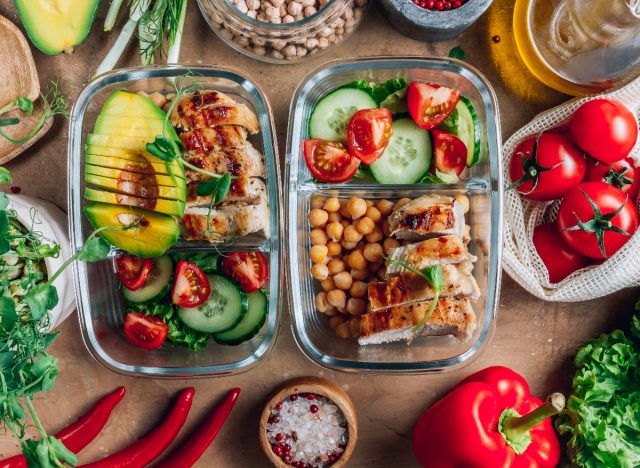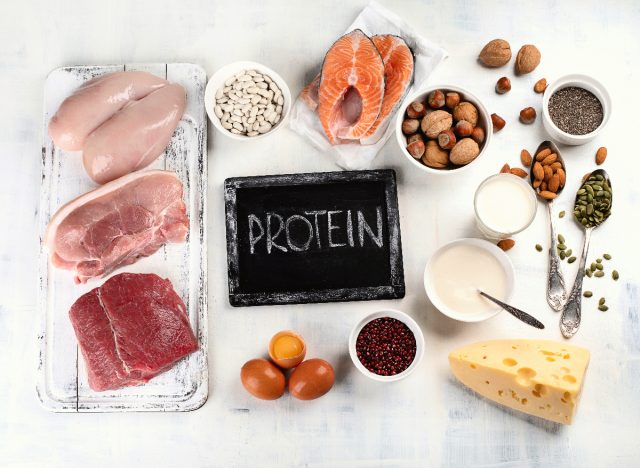The Ultimate 30-Day Belly Fat-Melting Plan for Beginners

Embarking on a journey to shed belly fat can be both exciting and challenging—especially for my clients new to fitness. A comprehensive 30-day plan that combines effective diet and fitness strategies is key to achieving sustainable results. That's why I'm here to share the ultimate 30-day plan to lose belly fat for beginners.
Embarking on a 30-day belly fat-melting regimen requires commitment and a holistic approach. By combining a well-balanced diet with a mix of high-intensity workouts, cardiovascular exercises, and strength training, you'll set the stage for a healthier, more active lifestyle. The below plan consists of 10 effective tips you should stick with throughout those 30 days and beyond.
Remember that everyone's journey is unique, and results may vary, so focus on progress rather than perfection. Consult with a healthcare professional or fitness expert before starting any new diet or exercise program—especially if you have any existing health concerns.
Keep reading to learn all about the ultimate 30-day plan to lose belly fat for beginners. And when you're finished, be sure to check out The #1 Protein to Eat for Weight Loss, According to a Dietitian.
Assess your current lifestyle.

Before diving into any fitness or diet plan, take a moment to assess your current lifestyle. Identify areas where you can make realistic changes, whether it's adjusting meal portions, incorporating more physical activity into your day, or managing stress.
Create a realistic meal plan.

Focus on a well-balanced diet that includes plenty of lean proteins, whole grains, fruits, vegetables, and healthy fats. In addition, bump up your fiber intake, as this has been linked to successful weight loss. (Keep in mind that fresh, whole fruits and vegetables are natural sources of fiber.)
Opt for smaller, more frequent meals to keep your metabolism active throughout the day. And lastly, consider reducing processed foods, sugary beverages, and excessive salt intake, as these can contribute to belly fat accumulation.
Hydrate adequately.

Proper hydration is crucial for overall health and can aid in weight loss. Aim to drink at least eight glasses of water per day, and consider incorporating herbal teas or infused water for added flavor without extra calories.
Prioritize protein.

There's plenty of research out there that reveals eating more protein than the recommended daily amount can lead to weight loss. So be sure to include lean sources of protein in each meal to promote satiety and preserve lean muscle mass. Foods like chicken, fish, tofu, beans, and eggs are excellent choices that can support your fitness and weight loss journey.
Incorporate high-intensity interval training.

High-intensity interval training (HIIT) workouts are a fantastic way to torch calories and promote fat loss. These short, intense bursts of exercise followed by rest periods can be adapted to various fitness levels. Try incorporating HIIT sessions three to four times a week for optimal results.
Get in your cardio.

In addition to HIIT, include moderate-intensity cardio exercises such as brisk walking, jogging, or cycling. Aim for at least 150 minutes of moderate-intensity cardio per week to enhance your overall fat-burning capabilities.
Strength train.

Building lean muscle mass can contribute significantly to belly fat reduction. Include full-body strength training exercises like squats, lunges, and planks in your routine two to three times a week. This not only burns calories during the workout but also boosts metabolism for hours afterward.
Implement core exercises.

While spot reduction isn't possible, strengthening your core muscles can help create a more toned appearance. Include exercises like crunches, leg raises, and planks to target the abdominal muscles.
Prioritize sleep and stress management.

Lack of sleep and chronic stress can contribute to weight gain, particularly around the abdominal area. The Sleep Foundation recommends adults aim for seven or more hours of quality sleep each night. In addition, incorporate stress-reducing activities like meditation or yoga into your routine.
Track your progress, and adjust accordingly.

Keep a journal to monitor your meals, workouts, and how you feel each day. Adjust your plan as needed, and celebrate small victories along the way. Consistency is key to long-term success.
- Source: https://www.frontiersin.org/articles/10.3389/fnut.2023.1110748/full
- Source: https://pubmed.ncbi.nlm.nih.gov/33610419/
- Source: https://www.ncbi.nlm.nih.gov/pmc/articles/PMC4901052/
- Source: https://www.ncbi.nlm.nih.gov/pmc/articles/PMC7539343/
- Source: https://www.ncbi.nlm.nih.gov/pmc/articles/PMC2991639/
- Source: https://www.ncbi.nlm.nih.gov/pmc/articles/PMC6196958/
- Source: https://www.ncbi.nlm.nih.gov/pmc/articles/PMC3428710/
- Source: https://www.sleepfoundation.org/how-sleep-works/how-much-sleep-do-we-really-need









